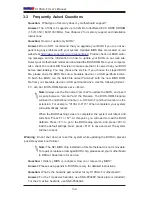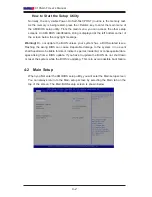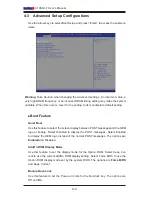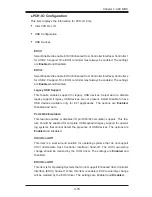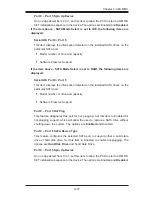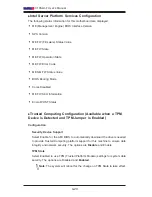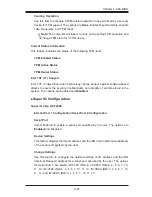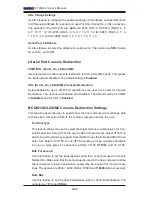
4-12
X10SLX-F User’s Manual
System Agent (SA) Configuration
The following System Agent (SA) information will be displayed:
•
System Agent Bridge Name
•
VT-d Capability
VT-d
Select Enabled to enable Intel Virtualization Technology support for Direct I/O VT-d
by reporting the I/O device assignments to VMM through the DMAR ACPI Tables.
This feature offers fully-protected I/O resource-sharing across the Intel platforms,
providing the user with greater reliability, security and availability in networking and
data-sharing. The settings are
Enabled
and Disabled.
PCI-E Configuration
This item displays the information of the (graphics) device installed on a PCI-E
slot.
CPU Slot7 PCI-E 3.0 x8
CPU Slot7 PCI-E 3.0 x8 Gen X
This feature allows the user to select PCI-E support for the device installed on
the slot specified above. The options are
Auto
, Gen1 (Generation 1), Gen 2
and Gen 3.
Run-time C7 Allowed
Select Enabled for the AMI BIOS to set the run-time control to C7 State. Be sure
to save your configurations settings before enabling this function. The options
are Disabled and
Enabled
.
Detect Non-Compliance Device
Select Enabled for the AMI BIOS to automatically detect a PCI-E device that is
not compliant with the PCI-E standards. The options are
Enabled
and Disabled.
Program PCI-E ASPM After OpROM
PCI-E ASPM, the Active State Power Management for PCI-Express slots, is a
power management protocol used to manage power consumption of serial-link
devices installed on PCI-Exp slots during a prolonged off-peak time. If this item
is set to Enabled, PCI-E ASMP will be programmed after OpROM. If this item
is set to Disabled, the PCI-E ASPM will be programmed before OpROM. The
options are
Enabled
and Disabled.

